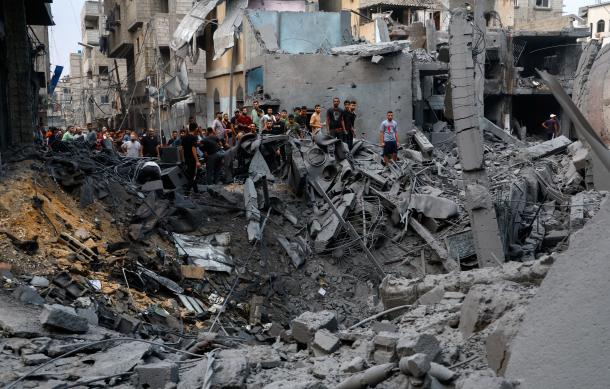
Israel has shifted the entire blame for its alleged genocidal acts in Gaza on Hamas during its submissions to the International Criminal Court in The Hague today.
South Africa has reported Israel to the International Court of Justice to stop its war in Gaza against the Palestinian people, who have been killed and uprooted from their homes.
It claims that it is not committing any act of genocide in Gaza, saying it is only protecting the lives of its people and the Palestinians against atrocities committed by Hamas.
Israel presented an emotive case graphically describing the alleged horrors its people experienced on October 7th, when Hamas attacked what it termed Israel's military installations.
The suffering of Palestinian and Israeli civilians is the result of Hamas using them as human shields, Israel contended.
The Jewish State further laid down conditions for ending the siege of Gaza.
"The appalling suffering of civilians, both Israeli and Palestinian, is first and foremost the result of this dispicable strategy. The horrible cost of Hamas not only failing to protect its civilians but actively sacrificing them for its own propaganda and military benefit, and if Hamas abandons this strategy, releases the hostages, and lays down its arms, the hostility and suffering will end," argued Tal Becker, a Legal Advisor for Israel.
Presenting an emotive case of the experiences of the Israeli population of the October 7 attack by Hamas, Becker said that Israel is simply protecting its people and does not have any genocide intent to wipe out the Palestinian population.
In its submissions on Thursday, South Africa insisted that Gaza has been turned into a concentration camp where Israel is committing acts of genocide, despite Israel's claims that it is to make Gaza a safe place where Palestinians and Israelis can live in peace and harmony.
"Israel has flatly denied South Africa's accusation. Despite these accusations, Israel has persisted in its genocidal acts against the population of Gaza. What more evidence is required to establish a dispute? It is precisely because of a situation of this kind. Article 9 of the convention does not require negotiations as a precondition to seeking the jurisdiction of the court when the existence of the dispute is clear," said Professor John Dugard from the SA legal team.
Israel, on its part, argued that the existence of a dispute and the jurisdiction of the court should be determined by the date on which South Africa submitted the application to the court.
"The court will take into account, in particular, any statements or documents exchanged between the parties as well as the exchanges made in multilateral settings. The key term here is the use of the word exchange between the parties. Bilateral interaction is required," explained Professor Malcolm Shaw from the Israel Legal Team.
But Professor Dugard, in his submission, laid out all the communications South Africa initiated with Israel, both bilaterally and on multilateral platforms, when he addressed the question of the jurisdiction of the court.





